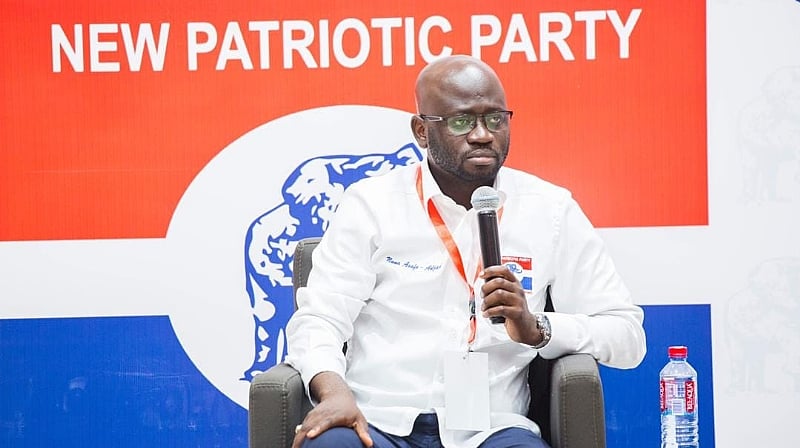The allegations made by Nana Kwame Asafo-Adjei Ayeh, the Deputy Ranking Member of Parliament’s Foreign Affairs Committee, paint a concerning picture of political favoritism and control within Ghana’s mining sector, particularly in small-scale mining operations. Ayeh, a member of the opposition New Patriotic Party (NPP) representing the Bosome Freho constituency, claims that the ruling National Democratic Congress (NDC) is systematically monopolizing the industry, pushing out miners affiliated with the NPP and empowering those loyal to the NDC. This alleged political takeover, according to Ayeh, is facilitated through discriminatory enforcement of anti-illegal mining (galamsey) laws, creating an environment where NPP-aligned miners are disproportionately targeted while NDC supporters operate with a sense of impunity. The result, he contends, is a significant shift in the ownership and control of mining equipment and operations, with NPP miners being effectively forced to relinquish their livelihoods to NDC counterparts.
Ayeh’s assertions highlight a potentially damaging trend of politicizing a vital sector of Ghana’s economy. He emphasizes that the alleged favoritism towards NDC-affiliated miners is not merely anecdotal but a widespread phenomenon observable in mining communities across the country. He cites instances where NPP miners have been compelled to hand over their tools and equipment to NDC supporters, ostensibly because the latter believe their political connections provide them with protection from legal repercussions. This perceived immunity, Ayeh argues, emboldens NDC-aligned miners to operate freely, even in violation of existing regulations, while their NPP counterparts are subjected to stricter scrutiny and enforcement. This disparity in treatment, he claims, is creating an uneven playing field and undermining the principles of fairness and equity within the mining sector.
The accusations leveled by Ayeh raise broader concerns about the governance and oversight of Ghana’s natural resources. If indeed the ruling party is manipulating the enforcement of laws to benefit its supporters and consolidate its control over the mining sector, it signifies a significant breach of public trust and a perversion of the regulatory framework designed to manage these resources responsibly. Such actions could lead to a number of detrimental consequences, including increased environmental damage due to unchecked illegal mining activities, a loss of revenue for the state due to potential corruption and under-reporting of production, and a deepening of political divisions within communities affected by mining.
Furthermore, the alleged marginalization of NPP-affiliated miners could exacerbate existing socio-economic inequalities and create fertile ground for resentment and conflict. The loss of livelihoods and the perception of unfair treatment could fuel social unrest and undermine the stability of mining communities. This situation also raises questions about the effectiveness and impartiality of the institutions responsible for regulating the mining sector. If these institutions are perceived to be biased or influenced by political considerations, it erodes public confidence in their ability to enforce the law fairly and protect the interests of all stakeholders.
The potential long-term implications of this alleged politicization of the mining sector are far-reaching. It could discourage investment in the industry, as potential investors may be wary of operating in an environment characterized by political interference and unpredictable enforcement of regulations. It could also damage Ghana’s reputation as a stable and transparent jurisdiction for mining operations, potentially affecting its ability to attract foreign investment and develop its mineral resources sustainably. Moreover, the erosion of trust in government institutions and the deepening of political divisions could have wider implications for Ghana’s democratic governance and social cohesion.
Addressing these allegations requires a thorough and independent investigation into the enforcement practices within the mining sector. Transparency in the allocation of mining permits and concessions is crucial, along with robust mechanisms for monitoring and reporting on mining activities. Strengthening the capacity and independence of regulatory bodies is essential to ensure that they can effectively enforce regulations without fear or favor. Furthermore, promoting dialogue and engagement between government, mining companies, and local communities can help build trust and address concerns about fairness and equity in the distribution of benefits from mining operations. Ultimately, ensuring a level playing field and preventing the politicization of the mining sector is critical for the sustainable development of Ghana’s mineral resources and the well-being of its citizens.


